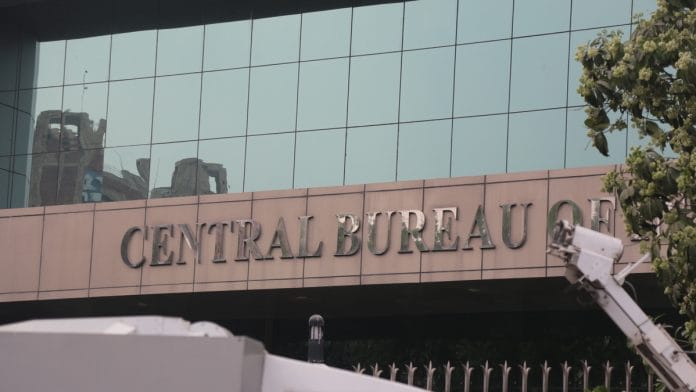New Delhi: The Central Bureau of Investigation (CBI) has registered cases against 56 politicians in the last three years, but only 26 out of them are still under investigation and complaints against 11 are yet to be converted into FIRs.
In its usual course of inquiry, the CBI either directly files an FIR or initiates a preliminary probe, following which an FIR is registered.
According to statistics provided by the Minister of State (MoS) Jitendra Singh in the Rajya Sabha Thursday, while 26 cases are under investigation after FIR, 11 are at the inquiry stage, another 11 are under trial, one sent for Regular Departmental Action (RDA) and seven have been closed.
RDA are cases that the CBI does not register either under the Indian Penal Code or the Code of Criminal Procedure (CrPC), but send them to the respective departments of the person concerned for action.
Singh also said most number of cases against politicians were registered in 2017, followed by those in 2018. “While in 2016, 11 cases were registered, in 2017, 18 cases against politicians, in 2018 there were 13 cases and in 2019 (up to 31 October) 14 cases were registered,” he said in a written reply.
In total, the CBI has registered 160 cases and preliminary inquiries against officials at the joint secretary and above levels, board-level officials in banks and public sector undertakings (PSU) and politicians in the last three years.
Also read: CBI inspector cooks up Bitcoin case against Gujarat businessman, extorts close to Rs 5 cr
54 joint secretaries booked
Talking of officials at the joint secretary and above levels, Singh said the CBI has booked over 54 officials, of which cases against 35 are still under investigation.
While three cases are at the inquiry stage, four are under trial and eight have been closed.
The most number of cases (26) were registered against officials in 2017. As many as 10 cases were registered in 2016, 14 in 2018 and four in 2019 (up to 31 October 31).
Singh also said 50 cases were registered against board-level officials in banks and PSUs in three years. There were 12 cases in 2016, 15 in 2017, 16 in 2018 and seven in 2019 (up to 31 October 31).
Will CBI be given statutory status?
When asked if the CBI will be given statutory status through legislation — to make the agency more independent and de-link it from the government’s administrative control — Singh only said the central government doesn’t interfere in investigation of cases that are carried out by the agency.
“CBI derives its powers as Delhi Special Police for the investigation of crimes under the Delhi Special Police Establishment Act, 1946. The central government does not interfere in the investigation of cases carried out by CBI. The director, CBI has been vested with greater financial and administrative powers,” Singh stated in his written reply.
It was during the D.P. Kohli Memorial Lecture in August this year when the then chief justice of India, Ranjan Gogoi, had mentioned that the CBI should be given statutory status through legislation, equivalent to the one provided to the Comptroller and Auditor General (CAG).
Gogoi had also pulled up the CBI for not having met the standards of judicial scrutiny in a number of high-profile and politically sensitive cases.
Quoting a few lines from Gogoi’s speech, Congress leader and Rajya Sabha member T. Subbarami Reddy sought the government’s response on the same. To this, Singh only said that Gogoi had spoken on the “current challenges and roadmap in the future for the agency”.
“Gogoi delivered a lecture on the topic ‘The Role of Police in Strengthening Justice Delivery’, touching on issues related to legal ambiguity which he felt had an impact on the working of the agency,” Singh said in his reply.
Gogoi had then said though lapses may not have happened frequently, such instances reflect “systemic issues and indicate a deep mismatch between institutional aspirations, organisational design, working culture and governing politics”.
Also read: All you want to know about ED — the dreaded nightmare of Indian politicians & businessmen






